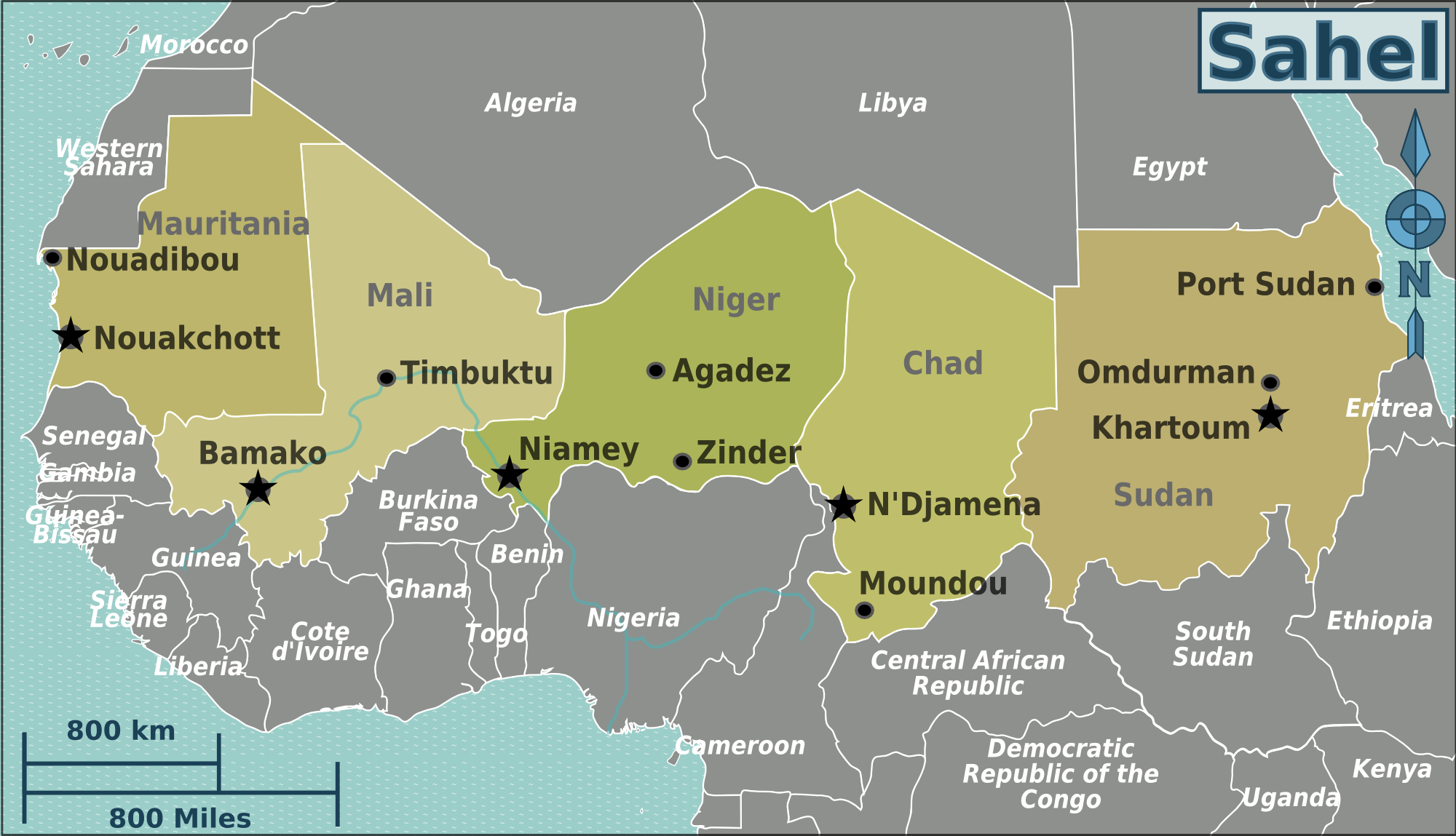INSTABILITY IN THE SAHEL REGION: WHAT EFFECTS ON CHINESE INTERESTS?
Mali, Guinea, Burkina Faso, Niger, Chad and Gabon are the eight former French colonies which, in the last three years, have seen their regimes overthrown by a series of coups d'état, the effects of which, it is clear, are not limited to creating instability in the already fragile Sahel region. On the occasion of the latest coup in Gabon – which led to the end of the ten-year rule of the Bongo family over the country – the European Union’s High Representative for Foreign Affairs and Security Policy, Josepp Borrell, declared that what happened represents ‘a major problem for Europe’, arguing that it is necessary to remain vigilant in observing developments. Just as much attention is being paid by a leading international actor whose strategic, political and economic interests towards the African continent are huge. I am referring to China, a global superpower which, over the last two decades, has significantly developed its relationship with the African continent: the volume of trade alone has risen from USD 11 billion in 2000 to USD 254 billion in 2022, and the people’s perception of China’s presence on the continent is generally positive in the eyes of African citizens, as indicated by the Afrobarometer.
CHINA AND AFRICA, A BENEFICIAL RELATIONSHIP
China’s plans for the development and deepening of ties with Africa, which have been of interest to the People’s Republic since its founding, have materialised over the last thirty years through a fruitful do ut des: the considerable investment in infrastructure by Beijing is matched by the opportunity to obtain supplies of precious raw materials and the equally valuable political and diplomatic support offered by its African counterpart.
In January 2006, China’s ambitions were further specified and updated in a policy document, entitled “China’s policy in Africa”, which underlined the affinities between the two actors and the common interest in development and security. The presence of the Asian giant has become increasingly cumbersome and sprawling in the last ten years, that is, since the official launch, in 2013, of the Belt and Road Initiative (BRI), better known as the New Silk Road. The implementation of this pharaonic project – in which China is expected to invest a total of more than $1 trillion – has further stimulated China’s presence on African soil, primarily by sending large military contingents to areas affected by United Nations peace-keeping operations (80% of Chinese troops engaged in such operations are actually in Africa). The presence of vigilant observers on the ground is also essential to guarantee security for hundreds of thousands of Chinese civilians present on the African continent. The presence of soldiers of the People’s Liberation Army (PLA) is far from limited to missions promoted by the UN: in Djibouti, a small state in the Horn of Africa, (strategic because of its location at the intersection of vital maritime passages, particularly for the flow of oil) Beijing inaugurated its first military base abroad in 2017. And precisely the corridor of sub-Saharan states linking Djibouti to the west coast is a vital objective in the eyes of Beijing in order to be able to inaugurate a second military base overlooking the Atlantic Ocean, underlines Limes.
But the coups in the Sahel region require a period of stalemate in Chinese penetration, and a careful reflection on what should be the most effective moves to ensure stable relations in the region.
As pointed out by the journalist Jevans Nyabiage of the South China Morning Post, Beijing, disinterested in political ideologies and in general in the nature of the regimes that govern the states that are the object of its interest to weave the plots of its global expansion, wants to chameleonically adapt to reality and forge solid ties with the military juntas currently in power .These are indispensable in order to further expand the geographical extension of the BRI to Mali, an important gold exporter, Sudan and Chad, where China has invested in the oil sector, but above all to give new, vigorous impetus to existing projects, the implementation of which has already been slowed down by the Covid 19 pandemic. According to Paul Nantulya, an analyst specialising in China-Africa relations at the Africa Centre for Strategic Studies in Washington, China is in fact operating according to “a model of great risk, great profit” and is therefore moved by the awareness of the need not to retreat into what is an extremely profitable path economically and militarily, albeit impervious and unstable.
Mondo Internazionale APS - Private Reproduction ® 2023
Share the post
L'Autore
Aurelia Maria Puliafito
Categories
Tag
Cina Africa Sviluppo Economia Relazioni Internazionali


